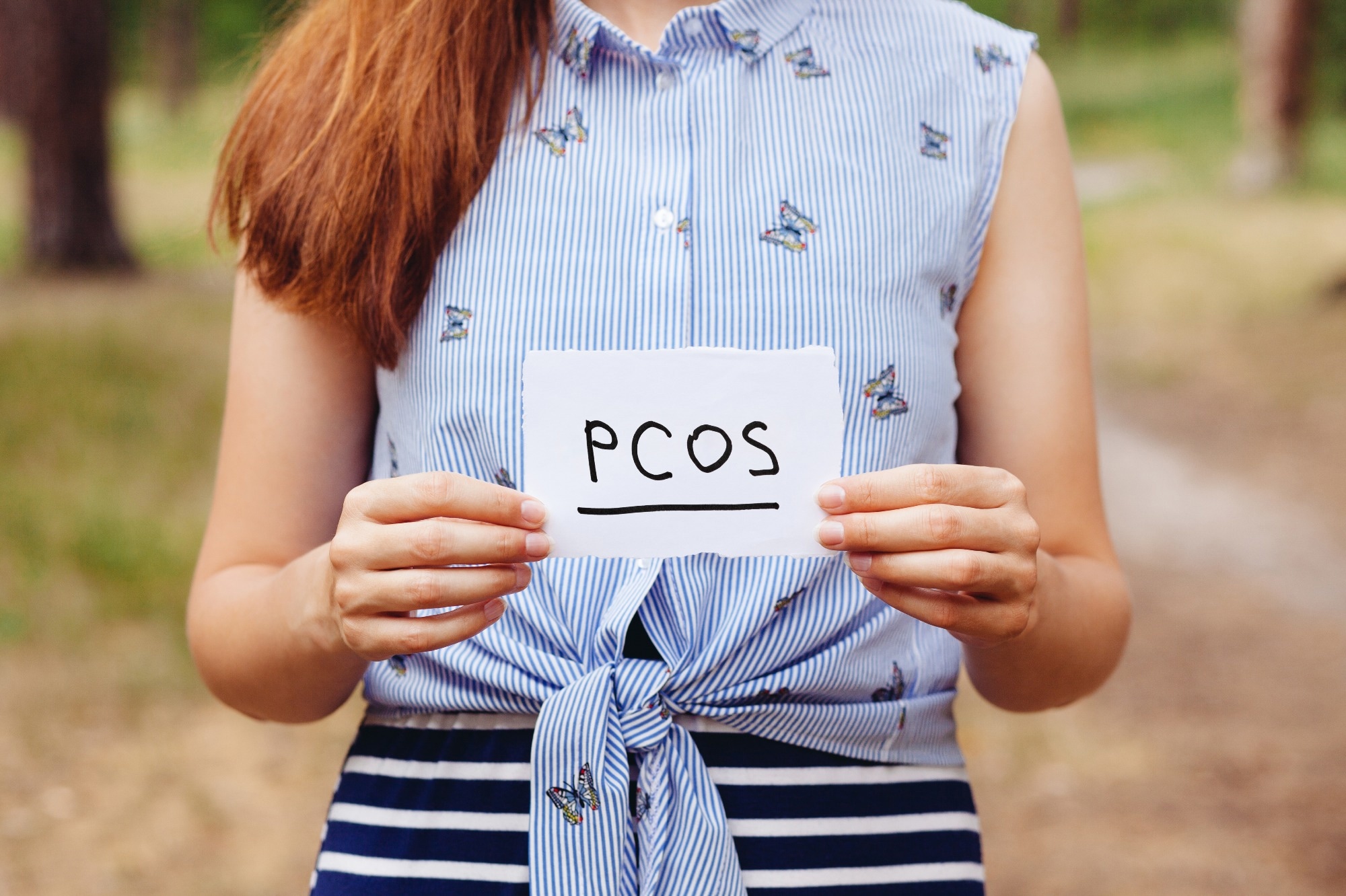Getting to know PCOS
Taking charge of your health
Healthy living with PCOS
Nourishing your body
Moving for health
Nurturing your mind
Empowering PCOS patients
References
Further reading
Many women around the world are impacted by polycystic ovary syndrome (PCOS). The World Health Organization (WHO) estimates that this metabolic syndrome impacts 8-13% of women of reproductive age and that most (70%) are undiagnosed. PCOS is the most common cause of anovulation (lack or absence of ovulation), which can cause infertility.
 Image Credit: justesfir/Shutterstock.com
Image Credit: justesfir/Shutterstock.com
Getting to know PCOS
PCOS is a significant women’s health problem; its symptoms can be challenging, and the syndrome can lead to a variety of serious long-term health problems as well as psychological distress.
PCOS is a hormonal condition that often begins in adolescence, although diagnoses may occur later in life. Symptoms of PCOS may change over time and often include heavy, long, unpredictable periods, the absence of periods, acne, hair growth on the face or body, hair thinning, and weight gain, particularly around the stomach.
PCOS is also associated with other serious health conditions, including type 2 diabetes, cardiovascular problems, and some types of cancer cancer. People with PCOS face significant biological and psychological effects of the disorder.
Awareness of PCOS is crucial to tackling the high proportion of undiagnosed conditions, which is important to reducing the risk of associated long-term health complications.
While PCOS is a serious health condition for which there is no cure, there are treatments available that can manage symptoms, reduce the risk of associated health conditions, and improve the physical and psychological toll of the condition. There are many strategies that can be leveraged to help a person enjoy a better quality of life with PCOS.
Taking charge of your health
The active management of PCOS symptoms can improve the well-being of a person living with the condition. Studies have shown that early diagnosis and management of PCOS can help control the disorder, allowing women to live a healthy life and avoid long-term health complications.
Left untreated, PCOS can increase the risk of other conditions. A 2009 review analysis identified a number of serious diseases and conditions that are thought to be linked with PCOS: type 2 diabetes, cardiovascular disease and hypertension, endometrial cancer, and ovarian cancer.
Other studies have indicated a high prevalence of sleep apnea with PCOS. Women with PCOS are also eight times more likely to experience depression than others.
Fortunately, it seems that actively managing PCOS can have a positive impact. Studies have shown that certain lifestyle changes can improve the well-being of those living with PCOS and, in some circumstances, can reduce the risk of developing certain complications.
 Image Credit: AUWAE PHOTO/Shutterstock.com
Image Credit: AUWAE PHOTO/Shutterstock.com
Healthy living with PCOS
Weight gain is a common effect of PCOS. While the exact nature of the relationship between PCOS and obesity is unknown, it is believed that the relationship is bi-directional to some extent, that each can influence and encourage the other.
Obesity can exacerbate many PCOS symptoms and put a person at a higher risk of the associated metabolic and cardiovascular conditions mentioned above.
By tackling weight gain, a person with PCOS can help manage their symptoms and lessen their risk of associated illnesses. Lifestyle changes, such as diet and exercise, can help someone with PCOS enjoy a better quality of life.
Nourishing your body
Many doctors recommend that women with PCOS can benefit from seeing a dietician. While the best advice on diet is tailored to the individual, overall, it is advised that many women with PCOS can benefit from reducing their intake of sugars and carbohydrates.
This is beneficial as it can help address insulin resistance, which seems to be important for women with PCOS. A doctor or dietician may recommend a diet higher in foods with a low glycemic index that releases insulin slowly.
A 2021 review of studies that investigated a change in diet in people with PCOS found that adopting a diet that contained fruit and vegetables with low glycemic index, small quantities of low-fat dairy, fish rich in U3 fatty acids, small quantities of lean red meat and poultry, legumes, whole grain, and alcohol only in moderation positively impacted the clinical manifestation of the syndrome.
Moving for health
The international PCOS guidelines advise that women of a normal weight should engage in at least 150 min/week of moderate-intensity exercise; for women with PCOS who are overweight or obese, 250 min/week is encouraged.
Exercise is an accepted tool for managing PCOS. The benefits of exercise for women with PCOS include enhanced glycemic control, enhanced reproductive and self-esteem, and better management of body weight.
Regular exercise can also address insulin resistance and lower cholesterol levels. Finally, aerobic exercise has also been shown to reduce the risk for psychological conditions, such as anxiety and depression.
 Image Credit: ORION PRODUCTION/Shutterstock.com
Image Credit: ORION PRODUCTION/Shutterstock.com
Nurturing your mind
Prolonged stress can lead to widespread inflammation due to persistent high levels of cortisol (the stress hormone). Inflammation can aggravate PCOS symptoms.
Stress management strategies, therefore, can play an important role in managing PCOS. There are many approaches that can be beneficial in managing stress, such as breathing exercises or meditating, exercising, avoiding drugs and excessive alcohol, and adopting a healthy diet.
People also benefit from social connections in times of stress, this can be talking to a therapist, friend, or family member. Making time for yourself can also help to manage stress; setting aside time to relax and engage in activities that you enjoy or engage in self-care can be helpful in reducing stress.
Empowering PCOS patients
Connecting with professionals who are experts in PCOS, as well as with others who are coping with PCOS, can be a source of support. Many support groups are set up to provide support and raise awareness of PCOS, including DAISy-PCOS, Verity PCOS, PCOS Awareness Association, MyOva, and PCOS Relief.
Resources can be accessed via these organizations, as well as from the American College of Obstetricians and Gynecologists (ACOG), the American Society of Reproductive Medicine, Office on Women’s Health, The Hormone Health Network, and more.
References
- Barber, T.M. et al. (2019) ‘Obesity and polycystic ovary syndrome: Implications for pathogenesis and novel management strategies’, Clinical Medicine Insights: Reproductive Health, 13, p. 117955811987404. doi:10.1177/1179558119874042.
- Butt, M.S. et al. (2023) ‘Benefits of physical activity on reproductive health functions among polycystic ovarian syndrome women: A systematic review’, BMC Public Health, 23(1). doi:10.1186/s12889-023-15730-8.
- Patten, R.K. et al. (2020) ‘Exercise interventions in polycystic ovary syndrome: A systematic review and meta-analysis’, Frontiers in Physiology, 11. doi:10.3389/fphys.2020.00606.
- Polycystic ovary syndrome [online]. World Health Organization (WHO). Available at: https://www.who.int/news-room/fact-sheets/detail/polycystic-ovary-syndrome
- PCOS (Polycystic Ovary Syndrome) and Diabetes [online]. Centers for Disease Control and Prevention (CDC). Available at: https://www.cdc.gov/diabetes/basics/pcos.html
- Xenou M, Gourounti K. ‘Dietary patterns and polycystic ovary syndrome: A systematic review’ (2021) Maedica - A Journal of Clinical Medicine, 16(3). doi:10.26574/maedica.2020.16.3.516.
Further reading
Last Updated: Jan 16, 2024